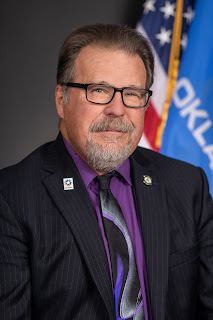Here's the deal. God made you. God made everything. Just as the electronic device you are reading this on had a designer, the building you are in had an architect, the vehicle you drive had a manufacturer, this entire universe - infinitely more complex - had a Creator. He orchestrated the atoms and molecules that make up everything.
As Creator, He has the right and prerogative for placing laws and rules for His creation to follow. You, and I, and every human being, have fallen short of those laws. We may think we're good, or that we're better than others, but that's a flawed assessment.
The Ten Commandments sum up God's Law. We have all broken every single one. We have lied. We have stolen. We have had inappropriate sexual thoughts (Jesus called this adultery of the heart). We have been angry without just cause (Jesus called this murder of the heart). We have coveted. We have blasphemed. We are all guilty.
"But judge, I'm not as bad as that other criminal!" doesn't fly in the earthly courtroom, nor the eternal courtroom.
Punishment for offenses increase as the party against which the crime was perpetrated increase in stature. Disobedience to parents require one level of correction/punishment. Crimes against a human government require a higher degree of punishment. Crimes against an infinite God require a greater punishment, namely an infinite punishment.
Heaven is real, and so is Hell. Hell is a real place, where the full righteous wrath of God Almighty is unendingly poured out on those who rebelled against the most loving and gracious Being in the Universe. You have sinned against God and earned for yourself Hell. I sinned against God and earned for myself Hell.
But, Jesus Christ, the second Person of the Trinity, God in flesh, came to earth and fulfilled God's Law on our behalf and paid our punishment with His sacrificial death, wiping away our sin-debt, our criminal fine, and giving us His righteousness.
We must, by faith, believe and repent. Believe that Jesus is who He said He was, that He died for us and rose again, and repent - turn away from our sin in disgust that we would offend God in such ways, and dedicate our lives to following Him, not in order to earn salvation but in recognition that we cannot save ourselves and in response and gratefulness to the kindness shown to us by God in providing a way of forgiveness.
This salvation is a free (and permanent, ever-lasting) gift of God, and is fully of Him. We contribute nothing to it except the sin that made it necessary. We can do nothing to earn it or maintain it. No amount of good deeds or prayers or pilgrimages or sacraments is sufficient -- only Christ is.
I cannot convince you of the Gospel. Only God can. My responsibility is to share it with you.
You must determine whether you will believe it to be true or not.
But know this: if all this is true, you will one day stand before your Maker and be held to account for the works you did and did not do during your life. And, you will be held to account for how you respond(ed) to the free offer of the Gospel that was presented to you, for better or for worse.
Life is short, and Man is not guaranteed tomorrow. Eternity is forever. God offers salvation freely to those who will believe. Receive it while you have opportunity to do so and do not tarry.




















































